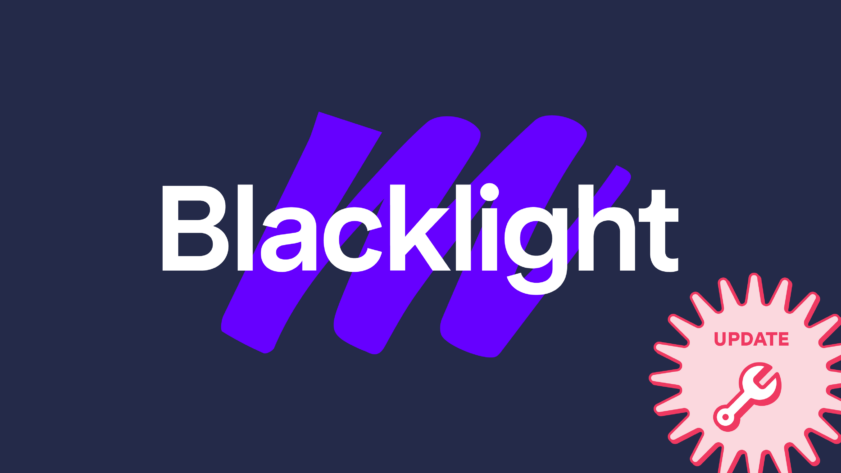Blacklight, our online tool that allows users to scan any website for tracking technologies, is being updated to detect new trackers.
On Thursday, June 1, readers can use the updated version of the tool.
One key feature of Blacklight is showing users which companies’ trackers are present on a website. Blacklight determines this by comparing a website’s network traffic with two regularly updated “tracker lists.” One is called the EasyPrivacy list, which is maintained by EasyList and used in a number of ad blockers. The other is called DuckDuckGo Tracker Radar and is provided by the search engine DuckDuckGo (disclosure: DuckDuckGo is a contributor to The Markup).
We are also updating Blacklight to detect trackers against a recent version of these lists, and added an additional tracker list: EasyList’s main eponymous list, which is focused on detecting network requests to advertising sites. Previously, we only used EasyList’s EasyPrivacy list, which specializes in detecting network requests to trackers not included in the main list.
Blacklight launched in September 2020, and since then has completed over 10 million scans. In addition to showing users the trackers present on a website, it also lists who gets the visitor data the trackers collect (for example, companies such as Meta and Google, and many less well-known ad-industry companies).
We’re also upgrading to a more recent version of Chromium, the open-source browser Google Chrome is based on, which Blacklight uses to visit the sites it scans. In another change, this browser now pretends it’s running on an iPhone 13 (it used to pretend to be an iPhone X).
Blacklight won’t look or work any differently than before. The most noticeable effects will be an increase in the number of trackers Blacklight finds on some sites, as newer trackers that didn’t exist in 2020 are now detected, and, thanks to the new version of the browser it runs, a decrease in the number of pages where Blacklight fails to return results.
We’re also likely to make other improvements to Blacklight as well. To inform that process, we’d like to talk to some of Blacklight’s users to get a better understanding of how they’re using it. If you are using or have used Blacklight to generate data and are willing to have a short conversation with us about your work, please email us at blacklight@themarkup.org.
To understand more about how Blacklight works, see our Show Your Work article, How We Built A Real-time Privacy Inspector, published alongside the launch of Blacklight. And as always, if you find something interesting, let us know!
Update, May 31, 2023
The article was updated to clarify when the Blacklight update will be available to users.




